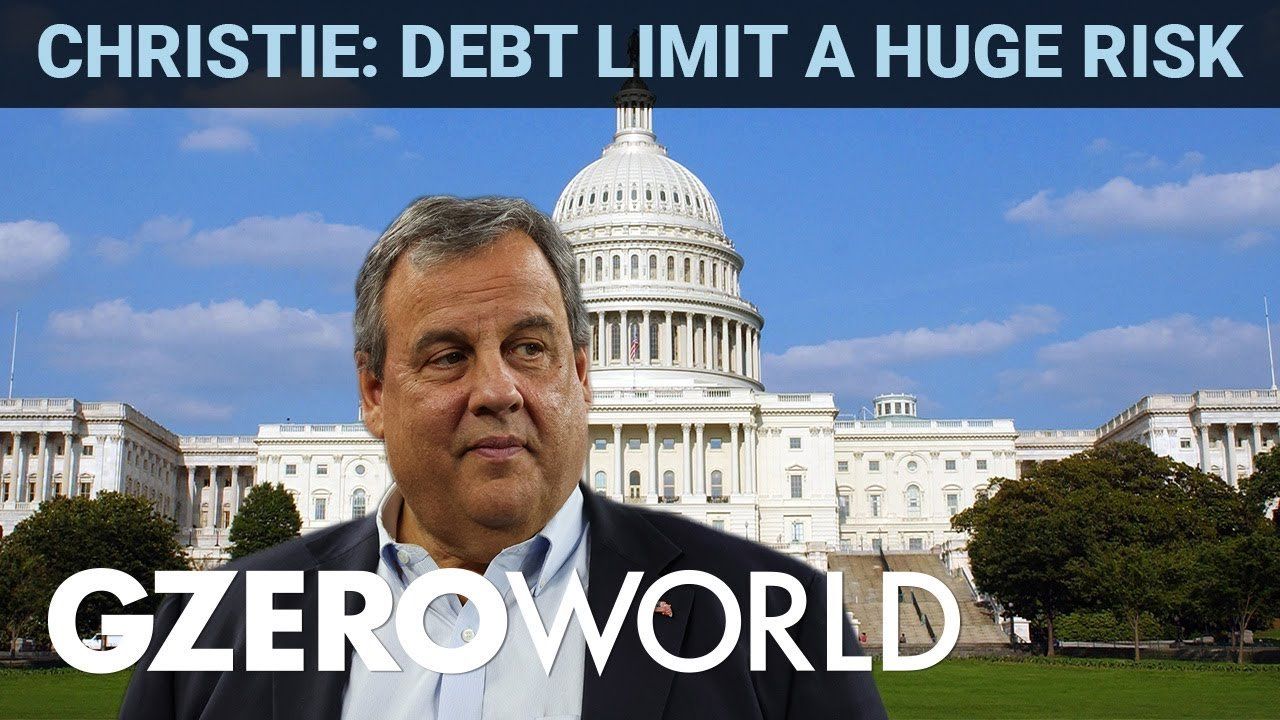GZERO World Clips
Chris Christie weighs in on US debt limit fight

Chris Christie weighs in on DC debt limit fight | GZERO World

Unless lawmakers in Washington can work out a deal to raise the debt ceiling, there will be “serious consequences for our economy,” says rumored GOP presidential candidate Chris Christie. The former governor of New Jersey spoke with Ian Bremmer on GZERO World to talk about the 2024 presidential race and the issues currently facing the Republican Party, including the House Speaker Kevin McCarthy’s current fight with the White House to raise the debt ceiling in exchange for deep cuts in federal spending.
The stakes are extremely high: If McCarthy and President Biden can’t agree on a deal, the federal government is at risk of defaulting on its debts, which would cause chaos in global financial markets. McCarthy and Biden met on May 9 to discuss the debt limit, but walked away without any real progress, aside from agreeing to meet again later in the week. Still, Governor Christie is confident both sides will eventually come to the bargaining table because the risk of not raising the federal debt is just too high.
Governor Christie points to the shakiness of the post-pandemic economy, including rising inflation and the banking crisis, as reasons why neither side will want to add to the current market instability. Also, he makes the argument that government spending rose significantly during both the Trump and Biden administrations, so there is some room for a compromise in both camps.
Christie is confident that, despite the current impasse, Biden and McCarthy will work out an eleventh-hour deal, “I think there will be a moment where they both say, ‘All right, I'm going to give you a little bit of what you need. I'm going to give you a little cover for what you need and we're going to move on.'"
Watch the full interview on the upcoming episode of GZERO World with Ian Bremmer, airing on US public television nationwide. Check local listings.
As expected, the Supreme Court struck down the bulk of Donald Trump's sweeping “Liberation Day” tariffs as illegal … and almost nothing changed.
Chris, an Army veteran, started his Walmart journey over 25 years ago as an hourly associate. Today, he manages a Distribution Center and serves as a mentor, helping others navigate their own paths to success. At Walmart, associates have the opportunity to take advantage of the pathways, perks, and pay that come with the job — with or without a college degree. In fact, more than 75% of Walmart management started as hourly associates. Learn more about how over 130,000 associates were promoted into roles of greater responsibility and higher pay in FY25.
Somewhere in the Donbas region, Ukrainian soldier Artem Bondarenko says he hasn’t slept through the night in months as he defends Eastern Ukraine.
In the latest episode of Vladimir Putin and Xi Jinping's hit wellness podcast This Authoritarian Life, we learn how positive communication patterns can break negative cycles in our relationships -- especially our relationships with Iran, Syria, Venezuela, and Cuba. #PUPPETREGIME